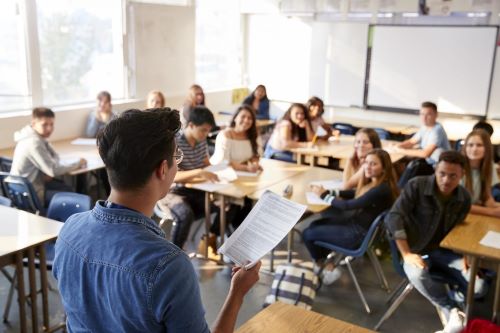
Challenging Hate Online
In this lesson students learn how digital media is used to promote or combat hatred and intolerance.

In this lesson students learn how digital media is used to promote or combat hatred and intolerance.

In this lesson, students start by considering the wide range of science and health information they are likely to encounter in news or through social media. They read an article on a scientific topic to help them understand the particular challenges of verifying science and health information and then use an educational computer game to practice skills in critically reading health and science stories. Finally, students compile a list of reliable sources they can turn to for verifying health and science stories.

In this lesson, students play the educational card game #ForYou: A Game About Algorithms and use it as a prompt to learn about and discuss the role that algorithms, data collection, and machine learning play in their lives. After playing, they analyze the game as an example of a serious game and then design their own serious game to communicate some of what they have learned in the lesson.

Overall Expectations:
Demonstrate an understanding of the practical applications of science and technology, and of contributions to science and technology from people with diverse lived experiences.
Specific Expectations:

Researching
4-0-2a. Access information using a variety of sources. Examples: school libraries, videos, traditional knowledge, CD-ROMs, Internet… (ELA 3.2.2, 3.2.4, TFS 2.1.1) GLO: C6
4-0-2b. Review information to determine its usefulness to inquiry or research needs. (ELA 3.2.3, 3.3.3) GLO: C6, C8
MediaSmarts Resources

This lesson begins with a brief history of citizen journalism and a discussion of just what it is.

In the working guide Journey On: Working Toward Communication and Information Technology Literacy, media-related outcomes are integrated throughout the CIT curriculum.

This outcome chart contains media-related learning outcomes from the Saskatchewan Health Education curriculum with links to supporting resources on the MediaSmarts site. The foundational and learning objectives of the elementary health curriculum are not categorized by grade level, as it is intended that these objectives will be attained over the entire period from grade 1 to grade 5.
